In diverse industrial landscapes, the demand for resilient and high-performance filtration, separation, and structural reinforcement materials is paramount. This necessitates a material that can withstand harsh operational conditions while maintaining integrity and efficiency. Enter Stainless Steel Wire Mesh – a critical component engineered to meet the stringent requirements of modern industry. From intricate filtration systems to robust architectural applications, its superior properties make it an indispensable choice for B2B decision-makers and technical professionals.
Our focus in this comprehensive overview is to delve into the technical intricacies, application versatility, and strategic advantages of utilizing advanced stainless steel wire mesh. We will explore its manufacturing precision, adherence to international quality standards, and its significant impact across a spectrum of demanding industries. This document serves as a technical resource, providing detailed insights for engineers, procurement specialists, and project managers seeking optimal material solutions.
The global market for Stainless Steel Wire Mesh is experiencing robust growth, driven by escalating industrialization, particularly in emerging economies, and the increasing demand for high-performance materials in critical applications. Key trends include a shift towards finer mesh sizes for advanced filtration, an emphasis on specialized alloys for extreme environments, and a growing adoption in renewable energy and environmental protection sectors. The petrochemical, chemical processing, and food & beverage industries remain significant drivers, continuously seeking materials with enhanced corrosion resistance and durability.
Technological advancements in weaving and welding processes are enabling the production of more complex and precise mesh structures, expanding application possibilities. Furthermore, sustainability initiatives are prompting industries to invest in materials offering extended service life and recyclability, where stainless steel excels. Market analyses indicate a compound annual growth rate (CAGR) exceeding 5% for the stainless steel wire mesh market, propelled by infrastructure development and increasing regulatory pressures for product safety and environmental compliance. Manufacturers are focusing on custom fabrication capabilities and quick lead times to meet diverse client requirements.
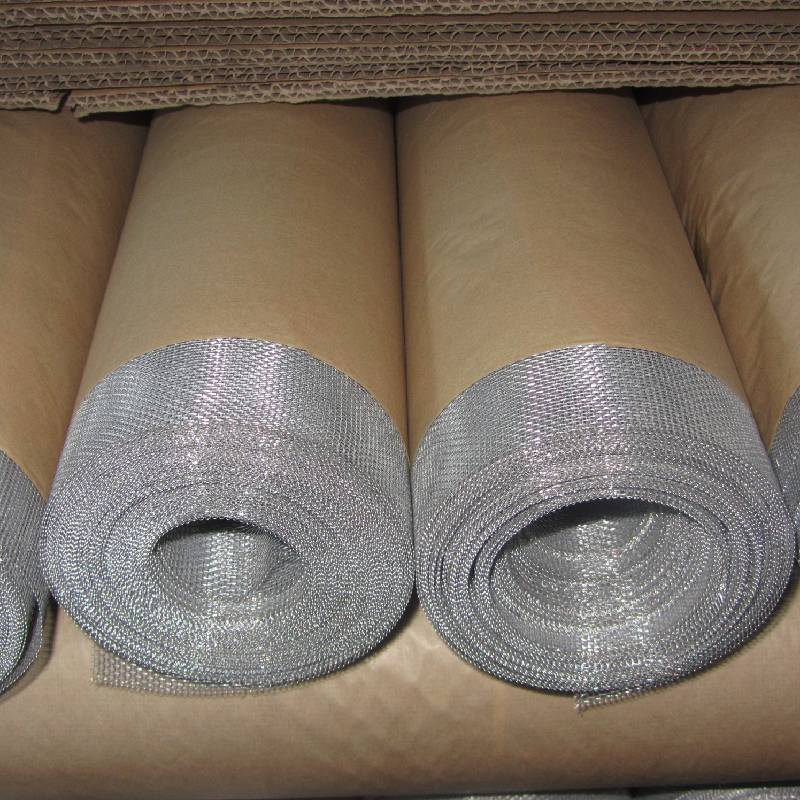
The production of high-quality Stainless Steel Wire Mesh is a meticulous process, beginning with the selection of premium-grade stainless steel wire. This foundational material, typically 304, 304L, 316, or 316L alloys, is chosen for its specific properties such as corrosion resistance, tensile strength, and heat resistance. The manufacturing process can be generally outlined in these schematic steps:
High-quality stainless steel billets are drawn into precise wire diameters, followed by annealing to enhance ductility and reduce internal stresses, optimizing for weaving.
Using advanced weaving looms (for woven mesh) or resistance welding machines (for welded mesh), wires are interlaced or fused to create the desired mesh pattern and aperture size.
Processes like passivation or electropolishing are applied to enhance corrosion resistance and provide a cleaner, smoother finish, crucial for food and pharmaceutical applications.
Mesh is precisely cut to specification using CNC machining or laser cutting, followed by bending, forming, or frame integration to create custom components.
Rigorous testing for mesh opening, wire diameter, tensile strength, and dimensional accuracy is conducted, adhering to standards like ISO 9001 and ASTM E2016.
Target industries for our mesh solutions include petrochemical, metallurgy, mining, water supply & drainage, pharmaceuticals, food & beverage, and architectural design. Our products demonstrate significant advantages in typical application scenarios, such as enhanced energy saving through optimized flow characteristics in filtration systems, and superior corrosion resistance in aggressive chemical environments, leading to extended service life and reduced maintenance costs. Our typical service life for properly installed and maintained 316L Stainless Steel Wire Mesh can exceed 10-15 years, significantly outperforming conventional materials.
The performance of Stainless Steel Wire Mesh is dictated by precise technical parameters. Our offerings adhere to international standards, ensuring consistent quality and performance. Below is a table detailing common specifications and typical ranges for high-grade industrial applications. Understanding these parameters is crucial for selecting the appropriate mesh for specific operational demands, influencing filtration efficiency, structural integrity, and material throughput.
| Parameter | Description | Typical Range/Value | Relevant Standard |
|---|---|---|---|
| Material Grade | Stainless Steel Alloy Composition | 304, 304L, 316, 316L, Duplex | ASTM A240/A240M |
| Mesh Count | Number of openings per linear inch | 2 to 635 Mesh (US Standard) | ASTM E2016 |
| Wire Diameter | Thickness of individual wires | 0.02mm to 4.0mm | ASTM A580/A580M |
| Aperture (Opening Size) | Size of the clear opening between wires | 25 microns to 12.7 mm | ISO 9044 |
| Weave Pattern | Method of wire interlacing | Plain, Twilled, Dutch, Reverse Dutch | Industry Standard |
| Open Area (%) | Percentage of open space in the mesh | 10% to 80% (varies by mesh) | Calculated |
| Tensile Strength | Resistance to breaking under tension | 520 - 720 MPa (for 304/316) | ASTM E8/E8M |
These specifications allow for precise engineering of filtration coefficients, flow rates, and mechanical robustness. For example, a finer mesh count, such as 400 mesh (37 microns), is ideal for ultra-fine particle separation in pharmaceutical or chemical synthesis, while a coarser 8 mesh (2.36mm) excels in aggregate screening or structural support. Our products meet or exceed the requirements of ISO 9001:2015 for quality management systems, providing assurance of consistent product integrity and performance.
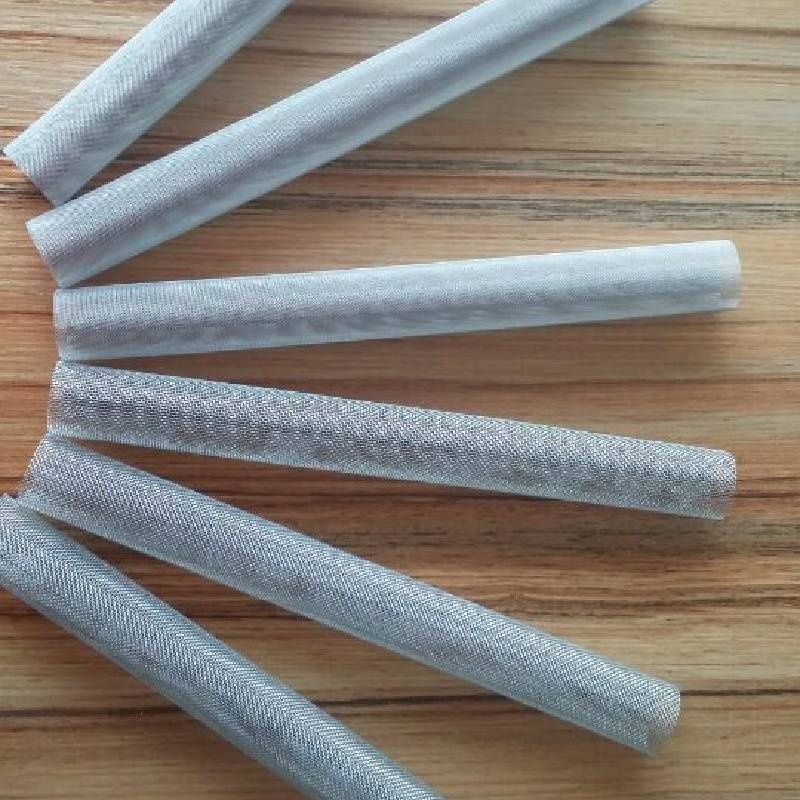
The intrinsic properties of stainless steel, combined with advanced manufacturing techniques, bestow several critical technical advantages upon Stainless Steel Wire Mesh. These advantages are crucial for extending operational lifecycles, minimizing maintenance, and ensuring consistent performance in challenging industrial environments.
Performance tests indicate that our 316L mesh retains over 95% of its initial tensile strength after 5 years in moderate corrosive environments, significantly outperforming carbon steel alternatives. Detailed client feedback from numerous deployments consistently highlights reduced maintenance cycles and improved operational efficiency directly attributable to the robust performance of our stainless steel mesh products.
The versatility of Stainless Steel Wire Mesh allows for its extensive use across a multitude of industries, addressing diverse operational challenges from microfiltration to structural reinforcement.
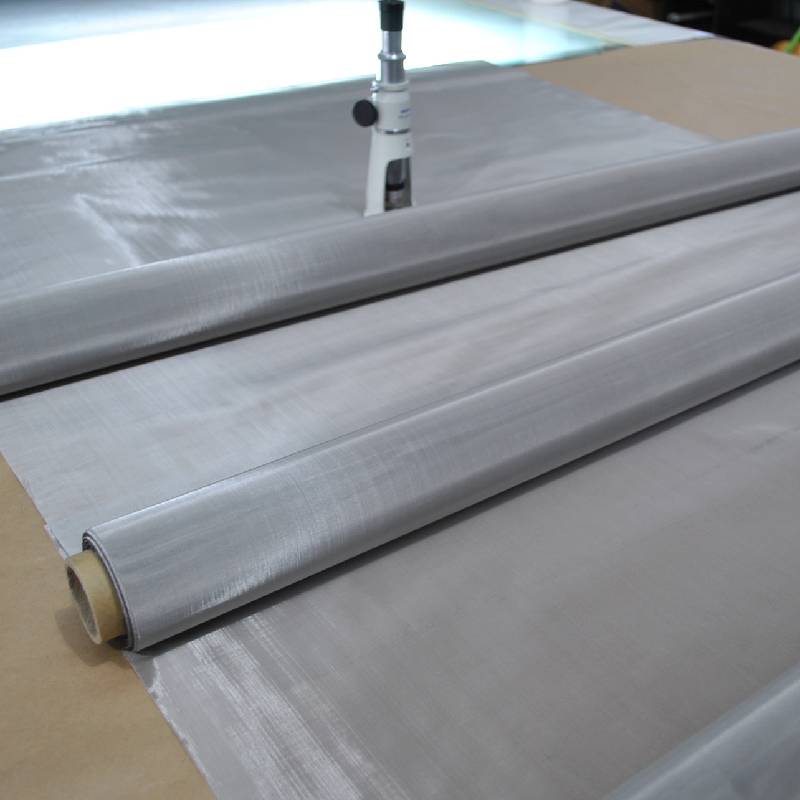
Choosing the right supplier for Stainless Steel Wire Mesh is critical. While many vendors offer similar products, key differentiators in manufacturing expertise, quality control, customization capabilities, and after-sales support significantly impact total cost of ownership and project success. Below is a comparison table highlighting essential evaluation criteria.
| Criterion | Our Offering | Typical Competitor |
|---|---|---|
| Material Sourcing & Traceability | Verified prime-grade SS from certified mills, full material test reports (MTRs) available. | Variable, sometimes uses secondary materials, MTRs not always comprehensive. |
| Manufacturing Precision | Advanced CNC weaving/welding, aperture tolerance ±3%, consistent wire diameter. | Standard weaving, aperture tolerance ±5-8%, potential inconsistencies. |
| Certifications & Standards | ISO 9001:2015, ASTM E2016, FDA compliance (where applicable). | Basic quality checks, fewer recognized certifications. |
| Customization Capabilities | Extensive customization for weave pattern, alloy, size, and fabrication (cutting, forming, welding). | Limited to standard sizes and common patterns. |
| Lead Time & Fulfillment | Standard orders 2-4 weeks, expedited options available, global logistics. | Standard orders 4-8 weeks, less flexibility. |
| Technical Support & Expertise | Dedicated engineering support, application consulting, material science guidance. | Basic sales support, limited technical depth. |
| Warranty & After-Sales | Comprehensive product warranty, responsive issue resolution, clear return policy. | Limited or unclear warranty, slower support. |
Our commitment to quality, backed by decades of experience and a robust certification portfolio, positions us as a premier partner for critical industrial applications. Our in-house metallurgical experts ensure material integrity, and our advanced production facilities guarantee the highest precision for every mesh specification.
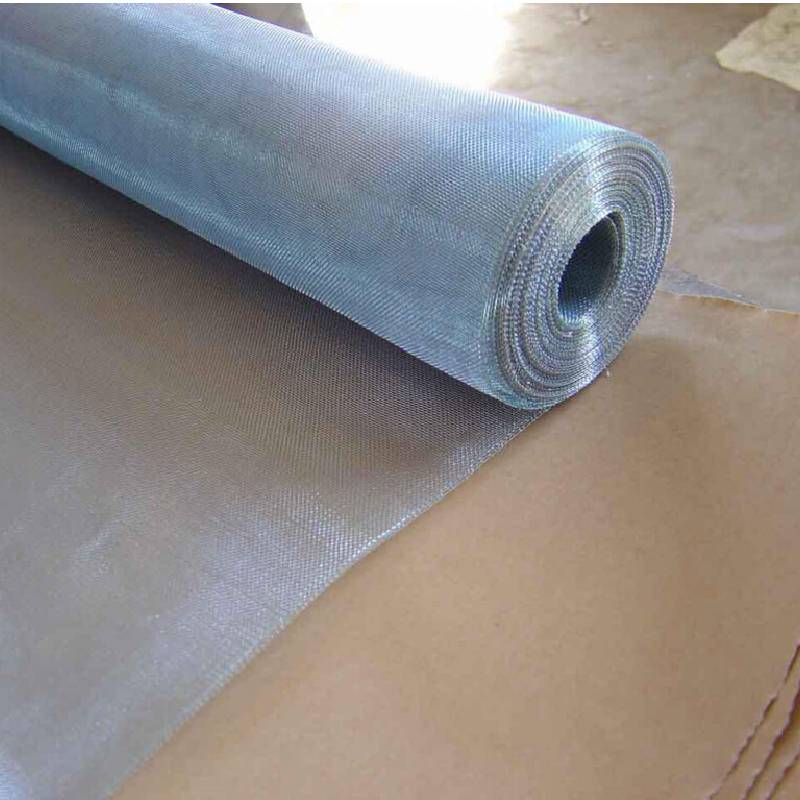
Recognizing that off-the-shelf solutions rarely meet every unique industrial requirement, we specialize in providing bespoke Stainless Steel Wire Mesh products. Our comprehensive customization capabilities ensure that each mesh solution is perfectly aligned with specific project demands, optimizing performance and integration.
Our engineering team collaborates closely with clients from conceptualization through to deployment. We can tailor mesh according to:
Our agile manufacturing processes and dedicated R&D team enable us to rapidly prototype and scale production for custom orders, ensuring optimal performance and cost-efficiency for even the most niche applications.
Our commitment to engineering excellence is best demonstrated through successful real-world applications. Here are a few examples showcasing the impact of our stainless steel wire mesh solutions:
A major petrochemical client faced frequent clogging and premature failure of their existing carbon steel filters in a highly corrosive crude oil distillation unit, leading to costly downtime. We engineered custom filter elements using 316L 100-mesh Stainless Steel Wire Mesh with a reinforced frame. The upgraded filters exhibited a 40% increase in filtration efficiency and extended service life by over 150%, significantly reducing maintenance intervals and improving product purity.
A pharmaceutical manufacturer required ultra-fine filtration for their wastewater discharge to meet strict environmental regulations. We supplied custom-fabricated 500-mesh Dutch weave stainless steel filter bags, demonstrating superior particle retention down to 25 microns. This solution not only ensured regulatory compliance but also allowed for the recovery of valuable trace materials, showcasing both environmental and economic benefits.
For a prominent commercial building, an architect sought a durable, aesthetically pleasing, and low-maintenance material for a dynamic facade. We provided large panels of woven 304 Stainless Steel Wire Mesh with a specific open area and polished finish. The mesh provided sun shading, reduced energy consumption, and created a distinctive visual texture that enhanced the building's contemporary design, validating its dual functional and aesthetic advantages.
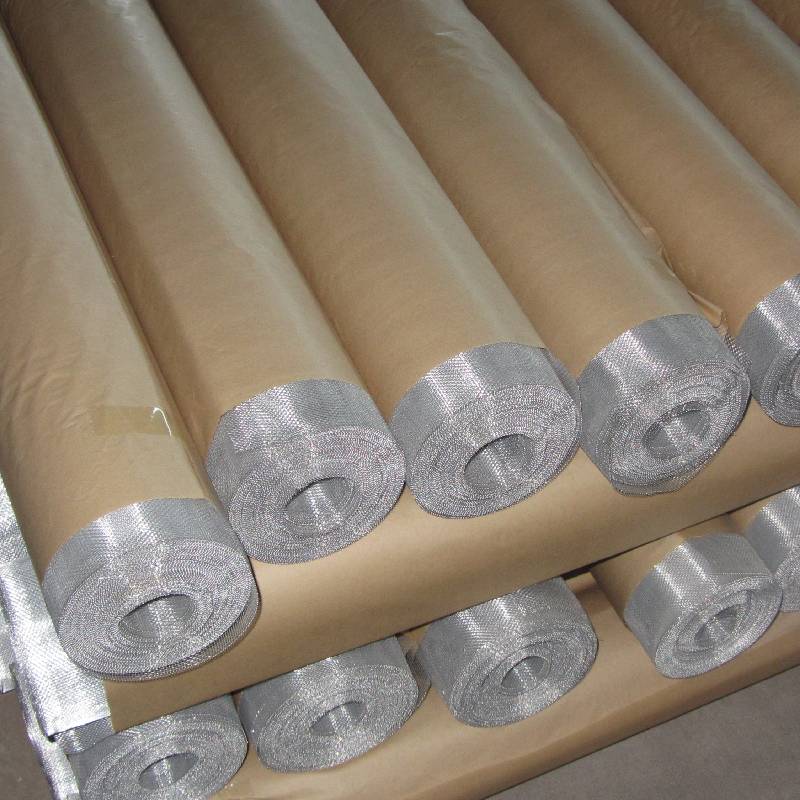
A: 316L stainless steel contains molybdenum, which significantly enhances its resistance to pitting corrosion, especially in chloride-rich environments (like marine applications or some chemical processing). 304 stainless steel is a general-purpose grade, offering excellent corrosion resistance for most common applications but less suited for highly aggressive conditions.
A: Selecting the correct mesh count depends on the particle size you need to filter or separate, desired flow rate, and pressure drop tolerance. We recommend consulting our technical team with details about your media, particle size distribution, and operational parameters for precise recommendations.
A: Yes, our food-grade 304 and 316L stainless steel wire mesh products are manufactured to meet stringent hygiene standards and can be supplied with certifications verifying compliance with FDA regulations for food contact materials. Electropolishing can further enhance suitability.
A: Lead times for custom orders typically range from 4 to 8 weeks, depending on the complexity of the design, material availability, and current production schedule. Standard stock items usually ship within 2-4 weeks. We offer expedited options for urgent projects.
We understand the importance of timely delivery in industrial operations. Our robust supply chain and efficient production planning enable us to offer competitive lead times. For standard Stainless Steel Wire Mesh products, typical lead times are 2-4 weeks. For complex custom fabrications, lead times range from 4-8 weeks, with clear communication and progress updates provided throughout the manufacturing process. We offer global shipping capabilities and can accommodate specific logistical requirements.
All our stainless steel wire mesh products are backed by a comprehensive 1-year warranty against manufacturing defects and material failures under normal operating conditions. This warranty reflects our confidence in the quality and durability of our products, which are manufactured under stringent ISO 9001:2015 certified quality control protocols. Our commitment extends to ensuring that our mesh meets the specified technical parameters and performs reliably in its intended application.
Our customer support team comprises experienced technical professionals and sales engineers dedicated to providing unparalleled service. From initial inquiry and technical consultation to order placement, after-sales support, and troubleshooting, we ensure a seamless and responsive experience. We offer:
Our goal is to build long-term partnerships by delivering not just high-quality products, but also exceptional service that adds tangible value to our clients' operations.
RELATED PRODUCTS